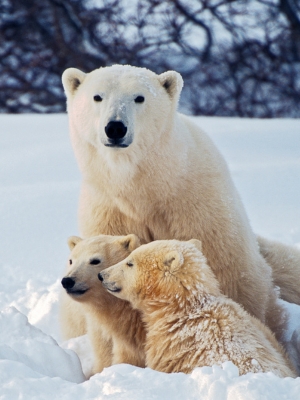Last week, it was reported that the International Science-Policy Platform on Biodiversity and Ecosystem Services (IPBES) had published a massive report based on the work of 145 experts that species extinctions are increasing at a rate unprecedented in human history. One out of four plant and animal species is at risk of extinction, while the world’s biomass of wild mammals has decreased by 82 percent – meaning displaced by the biomass that is us humans, and domestic animals raised for our use.
The report should have been the lead item of every news story (a British royal birth took that honor) as it was the largest assessment of its kind, boding disaster not only to so many life forms, but ourselves, as well. IPBES Chair, Sir Robert Watson, said, “We are eroding the very foundations of our economies, livelihood, food security, health and quality of life worldwide.”
It was reported that, “Land degradation has reduced the productivity of 23% of the global land surface, up to US $577 billion in annual global crops are at risk from pollinator loss and 100-300 million people are at increased risk of floods and hurricanes because of loss of coastal habitats and protection…” and “In 2015, 33% of marine fish stocks were being harvested at unsustainable levels; 60% were maximally sustainably fished, with just 7% harvested at levels lower than what can be sustainably fished.”
As people were sending me copies of the report and discussing it on various e-mail lists I am subscribed to, I heard a radio story about the loss of permafrost in the north, which is causing significant social upheaval, while unleashing still mgreater, escalating amounts of greenhouse gases. Meanwhile, I’m reading The Uninhabitable Earth: Life After Warming, by David Wallace-Wells (Tim Duggan Books, 2019), which graphically explains not only looming dangers from climate change, but those already unfolding with horrific results. It’s not hopeless, and everyone urges fighting back, as Born Free USA and its supporters do daily.
While good things happen, like the explosive growth in plant-based food meat replacements, the Extinction Rebellion (XR), good legislation being passed world-wide and enforced by dedicated agencies and individuals, and impressive technological development directed at reducing our negative impact on species and promoting clean energy, there is also massive push-back from political leaders, especially in this current U.S. administration. I’d argue their commonality derives less from political ideology but from ignorance, lack of empathy for victims of their policies and antipathy toward opponents who, by being informed, are deemed “elitist” or “special interest.”
From childhood, I remember my grandfather gently reassuring me that he had lived through many predictions of the earth’s end, so not to worry about such gloom-and-doom messaging. True. The world did not end when some said the Mayan calendar showed that it would, or after any of the dozens of other such predictions made in my lifetime. Most were believed by very few people. Still, polls taken in 2012 indicated that in the U.S., 22% thought the world would end in their lifetime.
It won’t, and that’s not what IPBES is about. It’s about a demonstrated decline in the ability of the planet to sustain species, as a result of a range of causes led or exacerbated by humans and climate change. And, unlike the others, the predictions made by scientists about the results of climate change have not merely come true, but often have been significantly exceeded.
Far too many political leaders here in Canada, and around the world, seem intent on increasing contribution to climate change. We are not – but should be – in crisis mode, based not on belief, but fact.
Keep Wildlife in the Wild,
Barry
Continue Reading: The Facts We Fear to Face: Part Two

 Dear Reader,
Dear Reader,